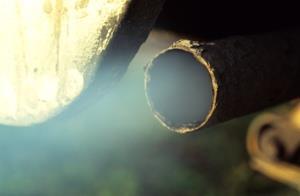
Trade associations are urging the government to provide more focus and funding to the road transport sector to help it play its part in reducing UK carbon emissions.
The government scheme – ‘Driving the Future Today – A Strategy for Ultra Low Emission Vehicles’ - was launched by the Office for Low Emission Vehicles (OLEV) earlier this month, with a vision of seeing a zero-emission UK car fleet by 2050.
However, both the FTA and the British Vehicle Rental and Leasing Association (BVRLA) have criticised the lack of detail provided for the road transport sector within it.
Rachael Dillon, FTA climate change policy manager, said: “There is no denying that the UK should be pushing ahead with making our cars more carbon efficient, but HGVs provide a vital role in delivering the goods for our economy and also need to decarbonise.
“In order for the UK to see a significant uptake of alternatively fuelled or low carbon HGVs, we need more financial support and incentives. Historically though, funding has been mainly allocated to private car users.”
Investment
The government has announced an investment of £500m to fund low-emission vehicle projects up to 2020, however, the FTA points out that, to date, only £6.5m has been allocated to hauliers.
BVRLA chief executive Gerry Keaney added that rental and leasing companies buy nearly half of the UK’s car and van pool, whilst running the lowest emission vehicles on UK roads, yet are poorly represented in policy making decisions.
“As bulk purchasers, they are uniquely positioned to be able to work proactively with government policymakers in helping them deliver their green agenda. This still isn’t happening,” he said.
Keaney added that it is vital that OLEV and HMRC consults widely with the industry to come up with a long-term tax and incentive scheme.
Acknowledgement
The government report does acknowledge that take-up of low-emission technology in the road transport sector has been very low, citing barriers such as high upfront costs, lack of refuelling infrastructure and uncertainty over residual payback periods.
It also pledges to investigate opportunities to incentivise operators to invest in low-emission trucks and technology, with proposals for a technology accreditation scheme providing operators with information on the cost savings of alternative technologies.













